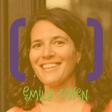
Don P Hooper: Keep Fighting. Keep Fighting. Keep Fighting.
Don P Hooper is a WGA-union screenwriter, an actor, and an author, whose new book True True hits bookstores on Tuesday, August 1.
Previously he contributed a story to Black Boy Joy: 17 Stories Celebrating Black Manhood.
CONTENT WARNING: trauma, racism, labor, explicit language, hate-based violence
We talk about:
The WGA/SAG-AFTRA strike
Shutting down productions across the country
How you can support writers and actors on strike
The importance of good mentors and collaborators
Tenacity and resistance as quintessential parts of black/African-American life
The novel writing process
Don’s first novel, True True
Questions of goodness, identity, and morality of AI
The through line of social uprising since 2016
survival, belonging, and community in a post-Trump world
Follow Don on instagram: www.instagram.com/madclownetry
Buy True True on Bookshop to support Don, the podcast, and your local bookstore: bookshop.org/a/95818/9780593462102
Buy Black Boy Joy on Bookshop to support Don, the podcast, and your local bookstore: bookshop.org/a/95818/9780593379936
Donate Aid for Striking Writers and Actors AND Learn More about Entertainment Community Fund Resources: https://entertainmentcommunity.org/how-get-help-and-give-help-during-work-stoppage
Donate Unrestricted Funds to the WGA East picket lines: https://venmo.com/steph_deluca
Donate Supplies in kind to the WGA East picket lines: https://www.target.com/gift-registry/gift/wgaestrike
This program is produced in south west philadelphia, in the unceded neighborhood of the black bottom community and on the ancestral land of the Lenape nation, who remain here in the era of the fourth crow and fight for official recognition by the commonwealth of Pennsylvania to this day. You can find out more about the Lenape Nation of Pennsylvania and how you can support the revitalization of their culture by going to https://lenape-nation.org.
Visit this episode’s sponsor, BVP Coffee, roasting high quality coffee that benefits HBCU students: https://bvp.coffee/uncommongoodpod
Visit this episode's sponsor, Poi Dog, chef Kiki Aranita creating sauces inspired by Hawaiian Cuisine: https://poidogphilly.com
we chat to ordinary people doing uncommon good in service of our common humanity.
we are creating community that builds relationships across difference by inviting dialogue about the squishy and vulnerable bits of life.
(un)common good with pauli reese is an uncommon good media production, where we make spirituality accessible to everyone and put content on the internet to help people stop hating each other.
thanks for joining us on the journey of (un)common good!




![BONUS: [moim] Gathering, David Rubenstein Atrium at Lincoln Center image](https://media.zencastr.com/cdn-cgi/image/width=112,quality=85/image-files/62b64321a33e0c0035b4bc2e/a5bd46bd-6072-4365-94bb-c1391a3e5105.jpeg)














